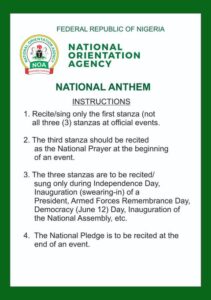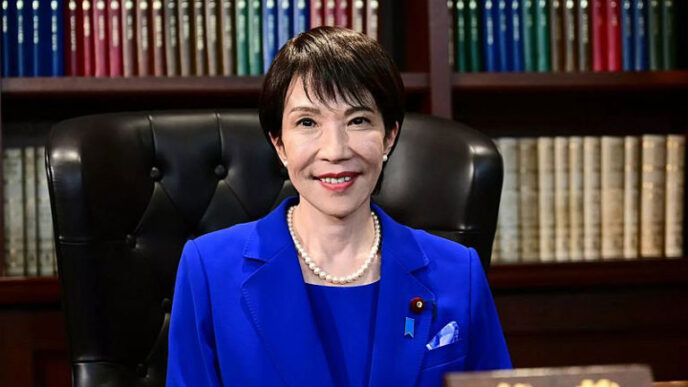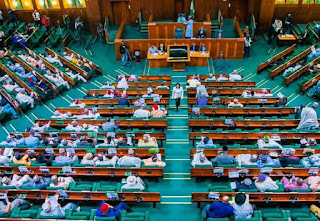National Orientation Agency (NOA) has announced a new directive regulating how the national anthem should be sung at public functions.
According to the circular released on Thursday, October 16, the agency directed that only the first stanzaof the anthem be sung during official events across the country.
The decision, it said, was made to promote uniformity, respect, and order during national ceremonies.
The NOA stated that all government ministries, departments, and agencies must now comply strictly with the new anthem guideline.
“The third stanza should be recited as the National Prayer at the beginning of an event,” the statement explained.
The NOA confirmed that the third stanza of the anthem has been officially adopted as Nigeria’s national prayer, marking a symbolic shift in how the anthem will be observed.
The stanza, known for its solemn and reflective tone, is now to be recited at the start of official eventsbefore any other activity takes place.
Officials explained that the adjustment was made to reinforce patriotism and unity, which are key elements of the anthem’s message.

Moreover, the recitation of the national pledge will continue to be observed at the end of events, maintaining the traditional sequence of national expressions.
The NOA’s new guideline further clarified that the complete three stanzas of the anthem will only be sung during major national ceremonies.
These include Independence Day, Armed Forces Remembrance Day, Democracy Day, the Presidential inauguration, and the swearing-in of the National Assembly.
Furthermore, the agency stressed that the update was not intended to diminish the importance of the anthem but to preserve its sanctity and align its usage with national ceremonial protocols.
“The aim is to maintain decorum and respect during the singing of the anthem while ensuring it reflects the spirit of national unity,” the statement added.
This development follows President Bola Ahmed Tinubu’s earlier approval of the reintroduction of Nigeria’s old national anthem, “Nigeria, We Hail Thee,” which replaced “Arise, O Compatriots” in mid-2024.
In addition, the agency reiterated its mission to promote civic responsibility and national identity, urging citizens to uphold the values expressed in the anthem and the newly adopted national prayer.











